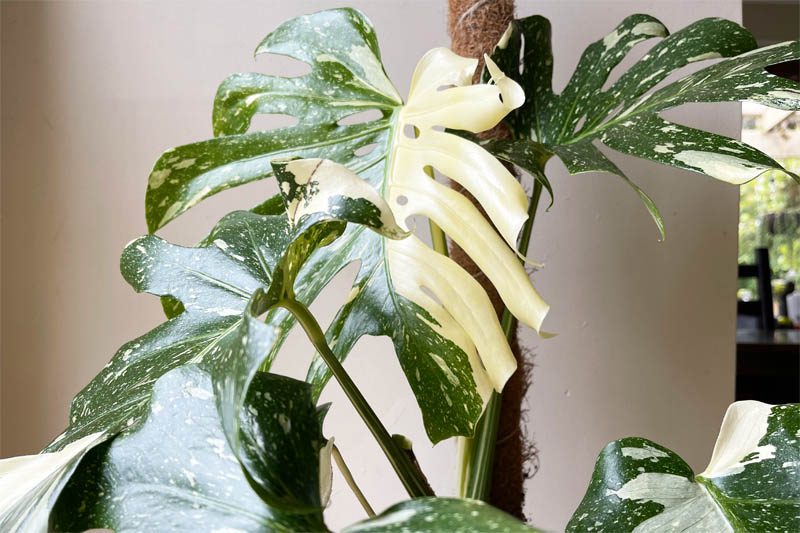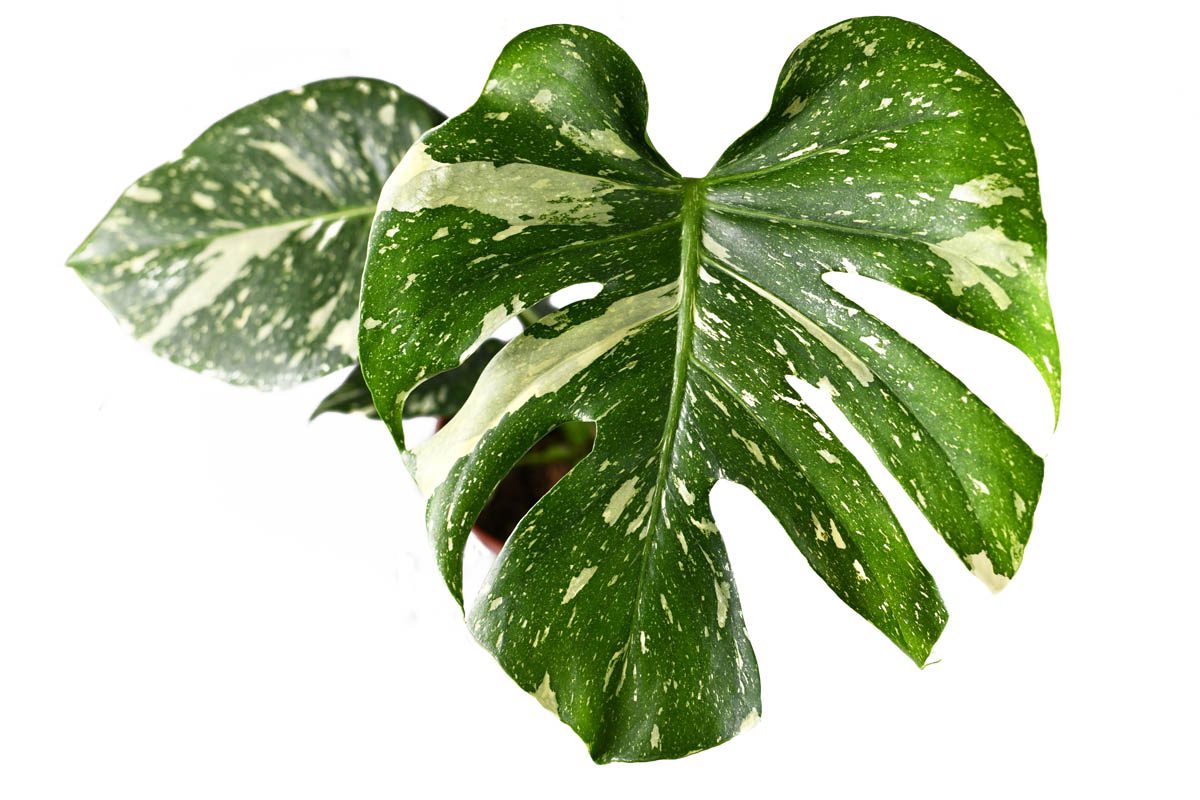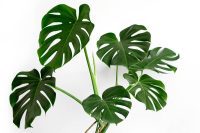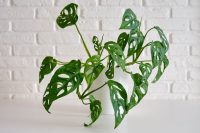What is Thai constellation? Toxicity Symptoms First aid Treatment Prognosis
Thai Constellation is toxic to dogs. The toxic principles are insoluble calcium oxalate crystals that penetrate the delicate tissues of the mouth and throat, causing pain, burning, and swelling.
What is Thai Constellation?
| Family | Araceae |
| Botanical name | Monstera deliciosa ‘Thai Constellation’ |
| Common names | Thai constellation, Variegated Swiss cheese plant |
| Leaf colour | Green and cream |
| Flower colour | White |
| Toxicity | Toxic to dogs |
| Toxic properties | Insoluble calcium oxalate crystals |
| Toxic parts | All parts |
Thai Constellation is a variegated Swiss Cheese plant (Monstera deliciosa), with stunning pale cream variegation in a marbled or blocky pattern. Each leaf is unique in its variegation, making this a truly remarkable plant. This relative newcomer to the plant world comes with a hefty price tag. A small plant sells for between $250 – $400, and larger plants start at $750.

The unique pattern on the leaves is due to a genetic mutation in the meristem. This mutation results in a plant with two genotypes, one of which can produce chlorophyll, while the other cell line is unable to. The meristem is a type of tissue made up of undifferentiated cells that differentiate to form tissues of the plant.
Thai Constellations are commercially produced via tissue culture in a laboratory in Thailand (hence the name), but established plants can be propagated via stem cuttings.
Related: Can you grow variegated Monstera from seed?
Toxicity
Plants have evolved a number of mechanisms to protect themselves against herbivory. The Thai Constellation contains insoluble calcium oxalate crystals arranged in bundles known as raphides. When the dog chews on any part of the plant, the raphides are released and penetrate the delicate tissues in the mouth causing acute pain, burning and in rare cases swelling.
Clinical signs
- Drooling
- Nausea
- Vomiting
- Diarrhea
- Pawing at the mouth
- Swelling
- Difficulty swallowing
- Difficulty breathing (rare)
Most dogs will stop chewing Thai Constellation due to the immediate pain they experience, and symptoms generally look more severe than they are. However, in some cases, the throat can swell, leading to difficulty breathing. This is a medical emergency and requires immediate veterinary care.
First aid
If it is safe to do so, remove any remaining plant matter from the dog’s mouth and offer a drink of something tasty such as milk. Caregivers should contact a veterinarian or pet poison helpline in the event of Thai Constellation ingestion. If the dog appears otherwise well, a wait-and-see approach may be recommended. Dogs experiencing moderate to severe symptoms should be taken to the nearest veterinary hospital.
Treatment
There is no antidote to Thai Constellation ingestion, and treatment is aimed at preventing further absorption and managing clinical signs. The veterinarian may induce vomiting to clear any remaining plant matter from the gastrointestinal tract followed by the administration of activated charcoal to bind to any remaining plant matter. Intravenous fluids will be given to dogs experiencing vomiting or diarrhea to prevent or treat dehydration and electrolyte derangements.
Prophylactic diphenhydramine may be administered to reduce the risk of throat swelling which poses the biggest risk to animals who have ingested Thai Constellation.
Prognosis
The prognosis for Thai Constellation ingestion is good. There is one reported case of a dog who needed a tracheostomy due to airway obstruction caused by dieffenbachia ingestion. Thankfully this is rare and almost all dogs will make a full recovery. If you do have a particularly curious dog who is showing an interest in your Thai Constellation, move it off to a spot the dog cannot access it. This will not only keep the dog safe but also the plant. I recently saw a Facebook post where a kitten had almost destroyed a Monstera deliciosa ‘albo’ (another variegated Monstera). The kitten was fine, but the plant suffered considerable damage.
Julia is a writer and landscape consultant from Wollongong with a love of horticulture. She had been an avid gardener for over 30 years, collects rare variegated plants and is a home orchardist. Julia is passionate about learning and sharing her knowledge of plant propagation and plant toxicology. Whether it’s giving advice on landscape projects or sharing tips on growing, Julia enjoys helping people make their gardens flourish.




